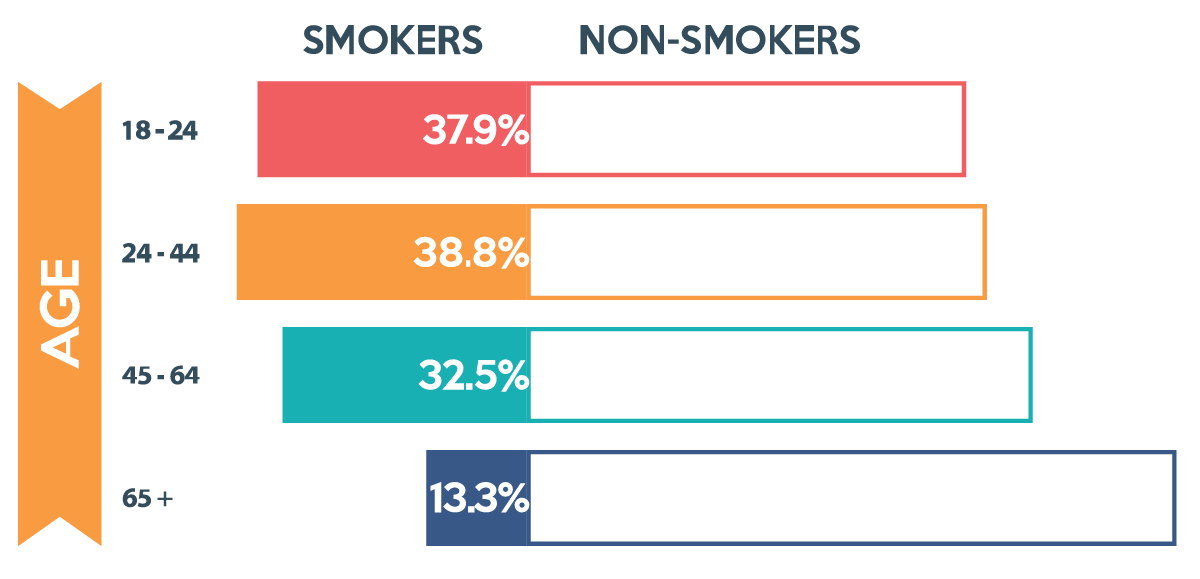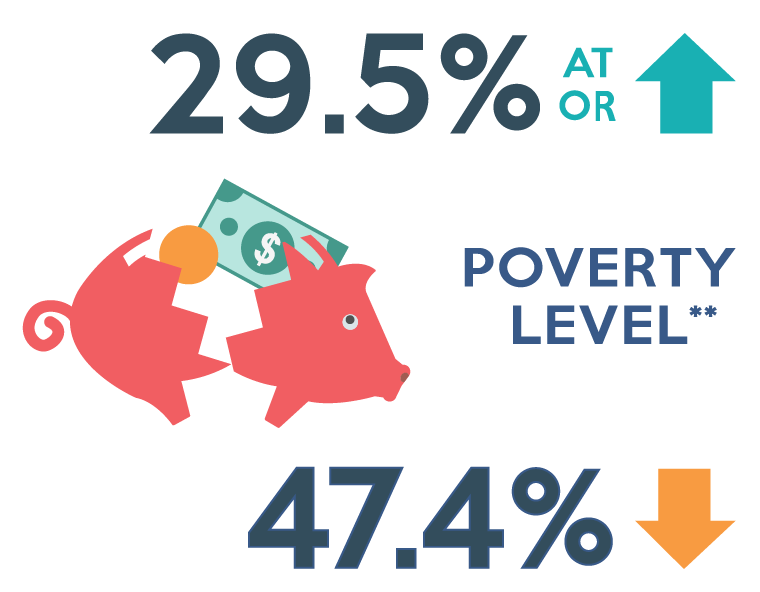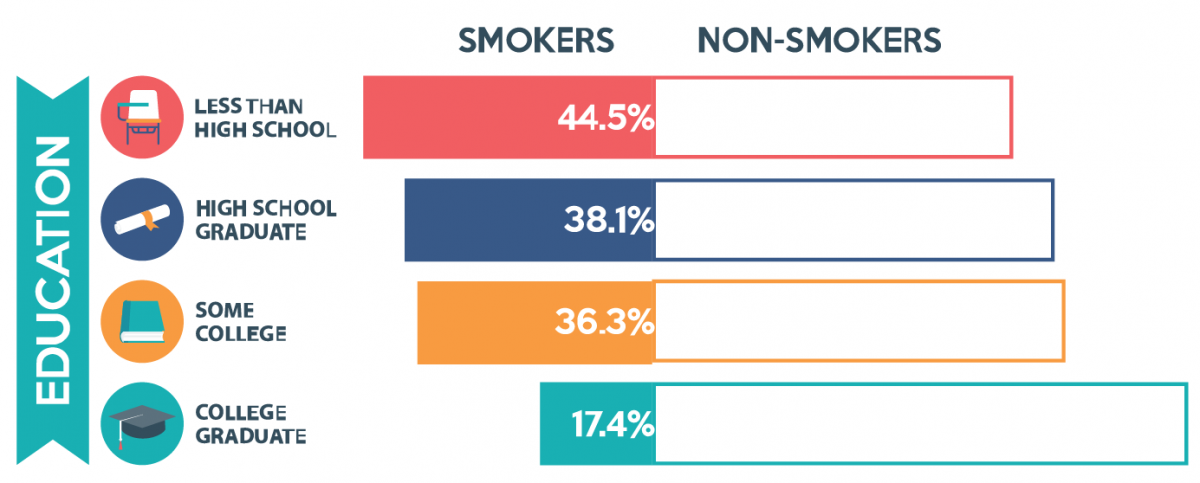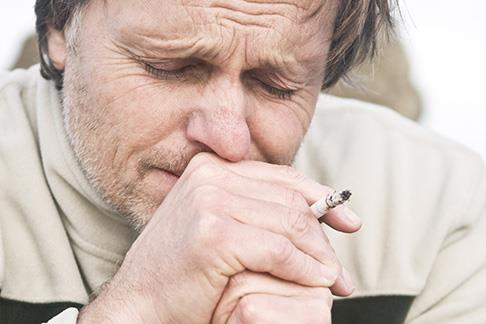We know the numbers of people who smoke, at least we have an estimate of those who smoke, but what about those that have some mental illness, do they smoke? If so, what is the percentage of those that have mental illness that smoke? Well if you have asked these questions, we have some stats for you?
Sex Differences
Men with mental illness are more likely than women with mental illness to smoke cigarettes.

Age
Over 75% of people with mental illness who smoke cigarettes are under the age of 44.

Geography
Rates of smoking among people with mental illness vary from state to state.
 |
|
| Less than 30% people with a mental illness who smoke cigarettes | |
| 30 – 34% people with a mental illness who smoke cigarettes | |
| 35 – 39% people with a mental illness who smoke cigarettes | |
| 40 – 44% people with a mental illness who smoke cigarettes | |
| 45% or more people with a mental illness who smoke cigarettes |
The state with the least people with mental illness who smoke cigarettes is Connecticut (21.9%).
The state with the most people with mental illness who smoke cigarettes is Missouri (52.1%).
Race/Ethnicity
American Indian/Alaska Native people with mental illness are most likely to smoke.
Asian people with mental illness are the least likely to smoke.
Rates of smoking are fairly consistent among people with mental illness of black/african american, white, hispanic/latino, and other ethnicities.

Poverty Status
People with mental illness who smoke are more likely to be below poverty level.

Education
The higher the level of education a person with mental illness has, the less likely they are to smoke.***

*Non-hispanic
**Estimates are based on a definition of Poverty Level that incorporates information on family income, size, and composition and is calculated as a percentage of the U.S. Census Bureau’s poverty thresholds. Respondents aged 18 to 22 who were living in a college dormitory were excluded.
***Education estimates are among persons aged 25 or older.
How Can The Church Help Those That Are Smoking and Have Some Mental Illness?
It is being said that the church is a spiritual hospital, it is where those that are spiritually, emotionally, and even physically sick can come for healing and deliverance, those that are mentally ill are no difference. Many people in the church once they hear of someone having some form of mental illness they quickly want to drift away from that person, but is that how Christ would deal with someone that are mentally ill? NO! He would not. He would put be move with compassion for that person and if we are suppose to be Christ-like (isn’t that what it means to be a Christian, to be Christ-like?) we should move with compassion for those that are struggling with whatever form of illness.
[tweetthis]How do you think the church can help those that have an addiction?[/tweetthis]
Each one of us should do what we can to help someone who is mentally ill, we can start by Foster a culture of compassion and authenticity. It should be the normal thing for people in your church to rush to help those that have some form of mental illness, especially if that person has an addiction for smoking. So what can the church do to help someone who is addicted to smoking, and also have a mental illness?
- Help that person through prayer and fasting- Prayer and fasting is two of the most powerful weapons we as Christians God has given us to tear down strongholds and to destroy the plans of the enemy, and to bring healing and deliverance to an ill world.
- Be kind and affectionate- Everyone deserves to be love and to show love. As a body, we should recognize and embrace the truth that all of us, no matter what our mental or physical condition is, are created in the image of God and he loves each one of us equally. People with mental illness are no less important than others, and people with symptoms are no less valuable than when they’re not experiencing symptoms. This attitude is an important starting point for ministry.
- Get the person the necessary help that he or she deserves
- Be a friend and a guide to the person. Breaking an addiction is not something that is easy to do for someone who do not have a mental illness, how much harder will it be for someone who has a mental illness. You can play your part by being supportive to that person while you continually pray for his or her deliverance knowing that the power of God can bring total deliverance to anyone no matter what the condition is.
I hope this article was helpful to you. Please take a few seconds to leave a comment to let us know what you think about this article and please do share it on Social Media as a way of supporting us.




